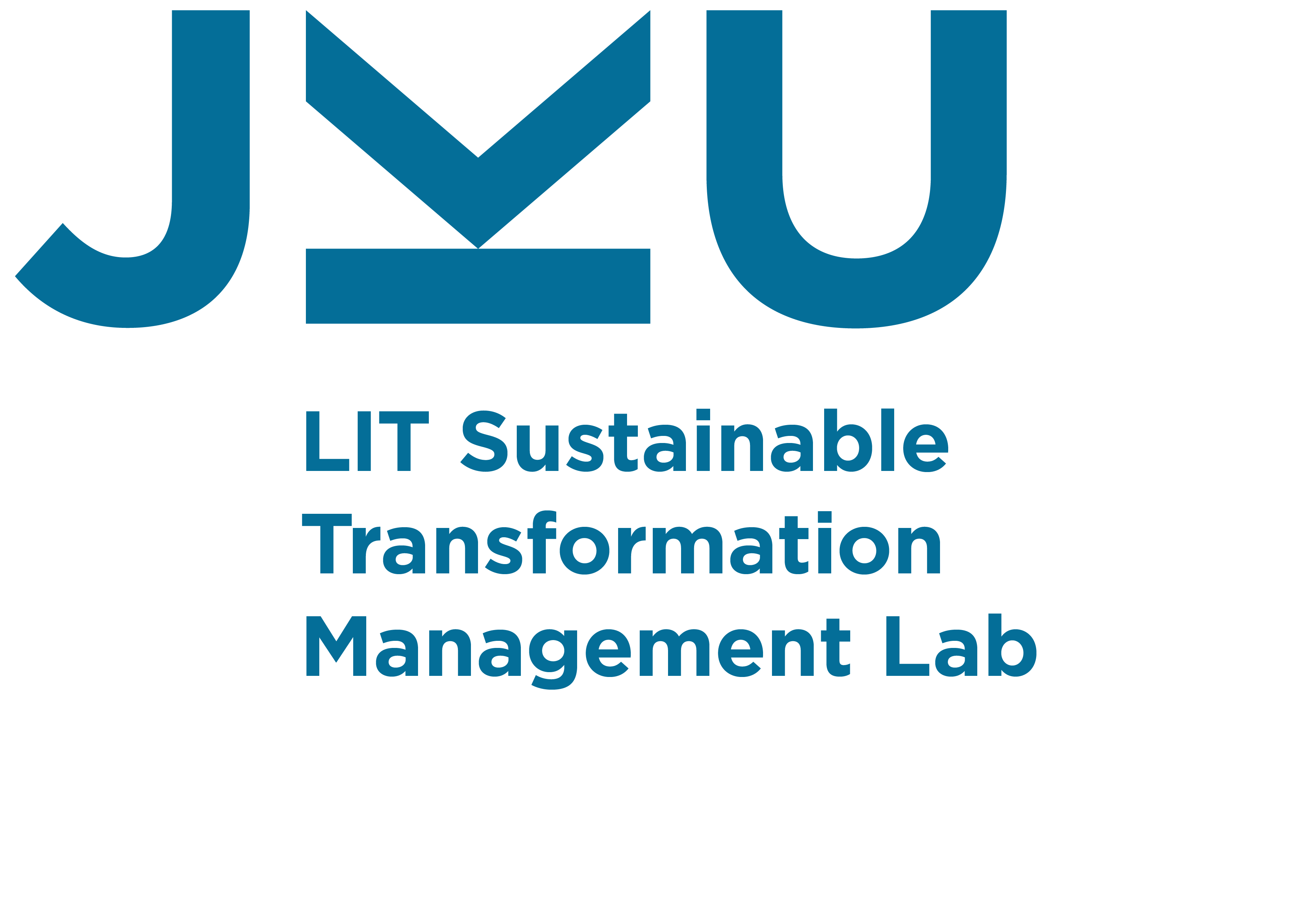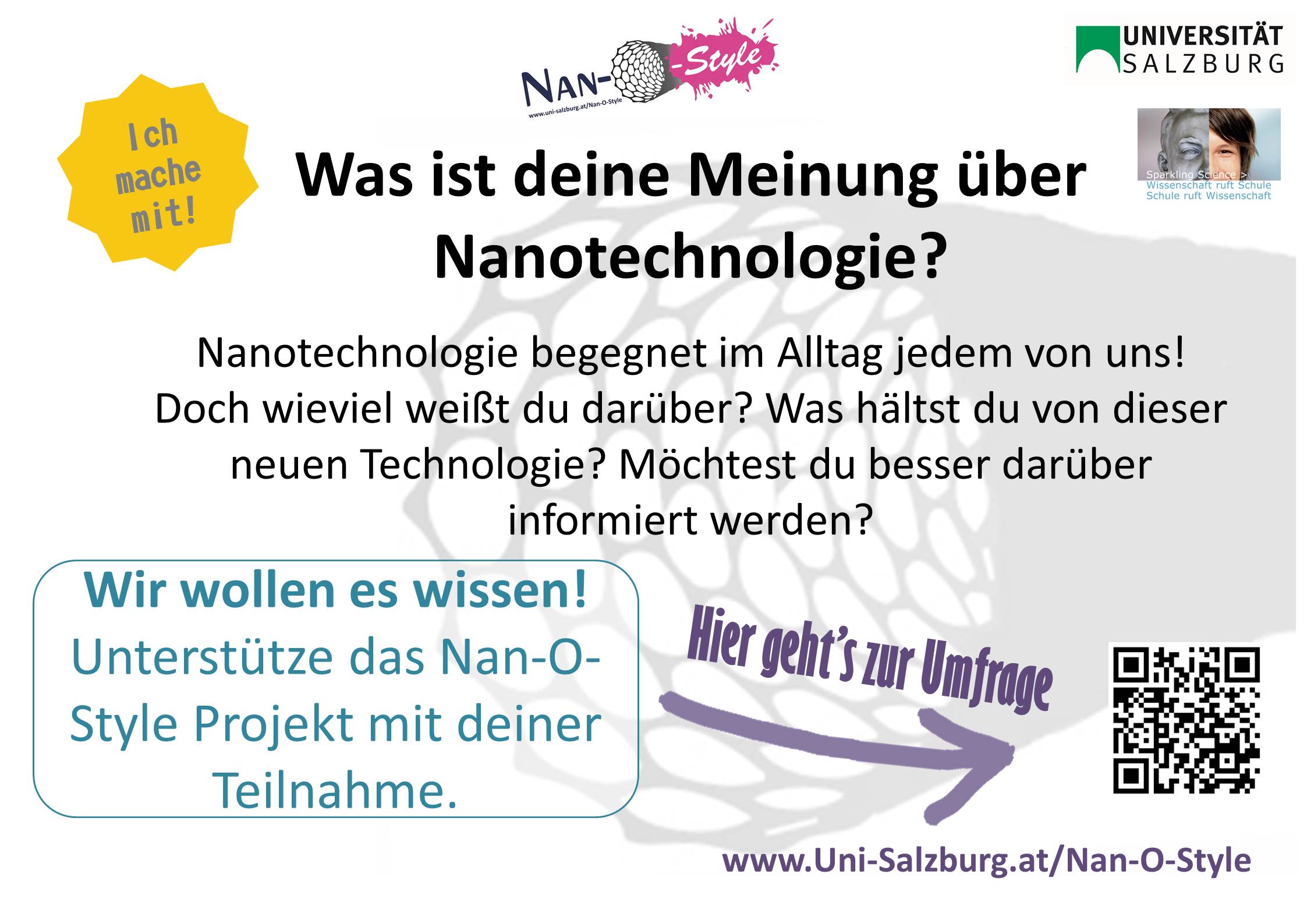DANUBE4all
DANUBE4all is an EU project with the main task of developing a comprehensive action plan for the renaturation of river stretches in the Danube River Basin (DRB). To this end, a collaborative stakeholder process is being developed that actively incorporates the interests of citizens. The action plan is intended to contribute to the improvement of the ecological status, biodiversity and river connectivity of the Danube ecosystems and thus supports the EU mission OCEAN ‘Mission Healthy Oceans, Seas, Coastal and Inland Waters’.
The development and implementation of innovative and socially relevant nature-based solutions has a wide range of positive effects. In addition to the improved connectivity of rivers, possible scenarios for floodplains, reducing the risk of floods and droughts, and other socio-economically effective measures are an important focus. Renaturation projects on the Danube are being promoted with the goal of improving the continuity of sediments and positively influencing habitats/biota. These include the Danube National Park east of Vienna, a section of the river in Hungary and a measure on the Danube delta.
Nature-based solutions must be developed in collaboration with the affected population and supported by them in order to be effective in the long term. Renaturation processes tend to unfold slowly and require continuous attention and active support in order to be successful. Accordingly, the intensive involvement of citizens along the Danube is an important component that makes renaturation possible in the first place. A special work package supports interaction with citizens through the activation of citizen science. Citizen scientists are particularly involved in the development, implementation, evaluation and scaling of nature-based solutions, a citizen science method toolbox, and the development of communication measures.
In particular, DANUBE4all serves the following research fields:
- Criteria and indicators for physical connectivity status as a starting point for renaturation options in the Danube catchment. A reflection of existing assessment methods and initiatives contributes to this.
- Analysing the (ecological) status of water bodies and biodiversity with the aim of expanding the existing transnational biodiversity monitoring with a strong focus on restoration. This includes long-term trends in connection with management and conservation measures associated with renaturation.
- Co-creation, implementation and results monitoring of nature-based solutions implemented in the project in the Danube River Basin. This includes:
- 3 restoration interventions with the participation of local residents (3 Demonstration Sites);
- the further use and replication of solutions in 5 Associated Regions;
- later a multiplication of the approach by supporting 10 restoration measures (10 Synergy Sites).
- Implementation of socially relevant integrative measures with municipalities in the Danube River Basin. This includes measures that trigger social and economic change, as well as the sustainable, integrative and long-term management of restored ecosystems through public mobilisation and engagement. This is also to be achieved through citizen science.
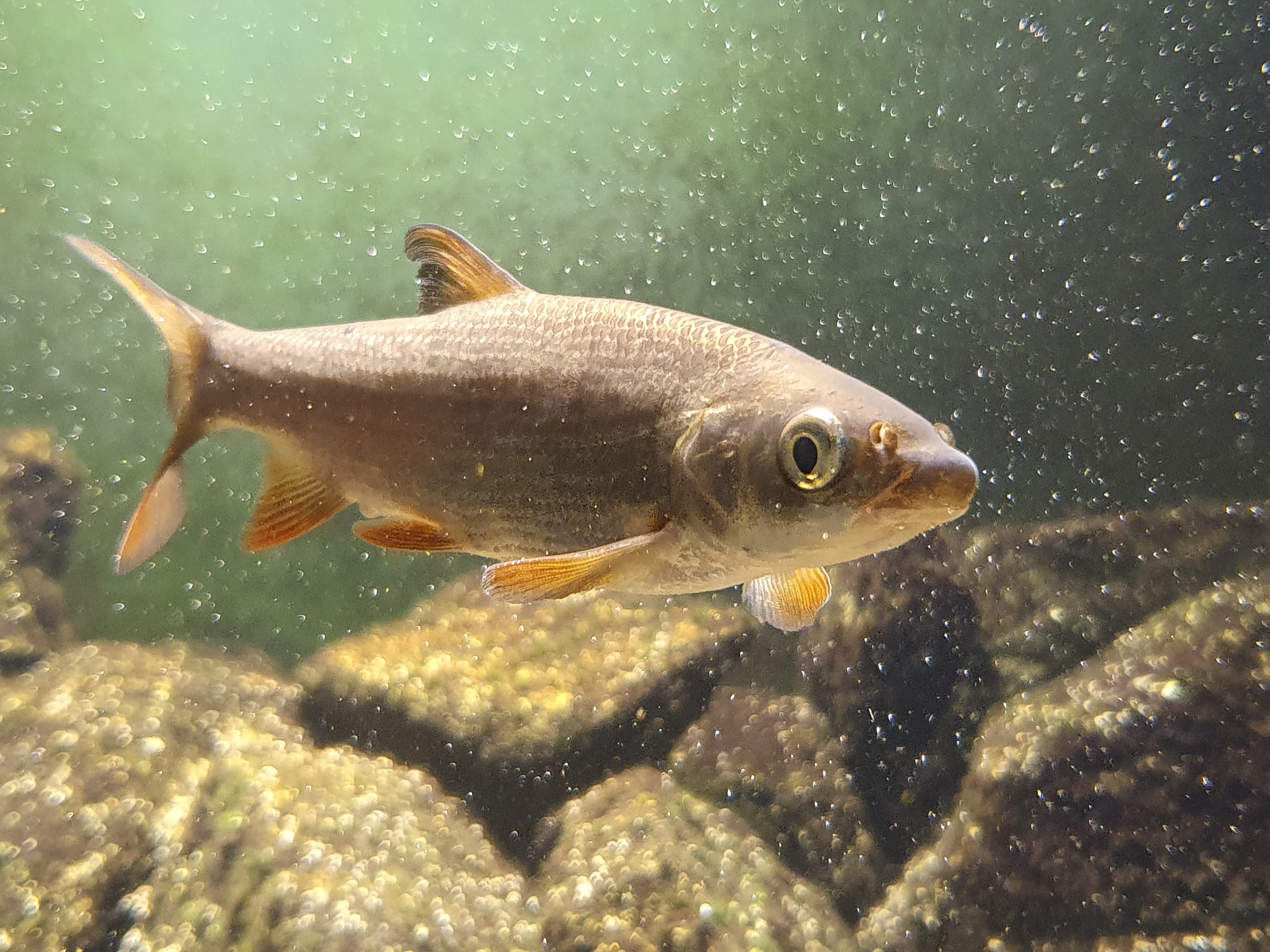
common nase, © Robert Togel (Images courtesy of viadonau)
This project fulfils version 1.1 of the quality criteria for citizen science projects on Österreich forscht.
ServeToPe
Better governance of ecosystem services at local scales in the Wienerwald region
A joint research project of the University of Natural Resources and Life Sciences, Vienna (BOKU) and the University of Vienna.
What is ServeToPe studying and what are its goals?
Society uses a variety of services that natural ecosystems provide, such as clean water, an attractive landscape for recreational purposes, food, or renewable energy sources. Many of these so-called ecosystem services (ESS) are influenced by humans. These include, for example, agricultural activities or the construction of roads. As a consequence, society regulates human actions and thus indirectly the availability of ESS. Examples of such policies are agri-environmental programs or local land use planning.
The Citizen Science project ServeToPe develops methods to better quantify the demand for ESS and their availability in a landscape. ServeToPe thus aims to contribute to more sustainable management of ESS and more targeted policies that focus on people's needs. ServeToPe is thereby based in the biosphere reserve Wienerwald as a case study region.
ServeToPe mainly aims to answer the following research questions.
- What is the current demand for ESS and to what extent can the Wienerwald region satisfy this demand with the offered ESS?
- What does "good management" mean from the citizens' point of view? How can policies contribute to a convergence of demand for ESS and their supply?
ServeToPe will reveal mismatches between the demand for ESS and their supply and will propose countermeasures. An example of this could be regional conservation efforts specifically planned for the landscape.
What methods are used?
ServeToPe uses a variety of methods to answer the research questions and to involve as many and as diverse citizens as possible. For example, workshops were held in schools or with citizens from the region. All citizens can participate online via a survey (see below). On the project website you can find more information about the methods and the roles of citizens (in German).
How can I participate?
Citizens are important research partners in ServeToPe. In particular, they support the visualization and quantification of the demand for ESS and of conflicting goals and trade-offs of between different ESS. A trade-off exists, for example, when several citizens want to use the same area for different purposes resulting in conflicts (e.g. recreational use and food production). You as citizen can therefore make an important contribution to the research project by participating in the following anonymous surveys.
In the main survey you can (1) enter your own activities and uses of ESS in the Wienerwald, (2) enter and locate frequently observed activities and ESS uses, and (3) identify trade-offs and opportunities for improvement. You can also upload pictures for this purpose. The main survey can be filled in only once.
However, you can also participate more regularly and thereby support ServeToPe even more intensively. This is possible via a second short survey, where you can enter and locate observed activities and ESS uses, as well as trade-offs. A picture upload is also possible here. In this short second survey, you can participate repeatedly over the entire duration of the project - i.e. continuously enter your observations. This gives us an even more accurate representation of uses and activities. You as a citizen scientist gain the opportunity to locate multiple uses and activities in areas and therefore identify multiple and more accurate trade-offs and improvements.
What happens to these results?
The results from the surveys of activities, uses, and trade-offs in the Wienerwald are compiled by the BOKU Vienna and University of Vienna research team and compared with other data on the supply of ESS (see methodology). These results are then published on the ServeToPe website. You can also sign up in our contact form to receive the results via email.
Afterwards, the results are presented to stakeholders from the region (e.g.: Employees of the administration, representatives from agriculture, nature conservation, recreational use, education and regional management) in a workshop. In this workshop, solutions and countermeasures will be developed based on the identified trade-offs and conflicts due to differences in ESS supply and demand.
If you have any questions, please contact Katrin Karner (This email address is being protected from spambots. You need JavaScript enabled to view it.) without hesitation.
The project team
ServeToPe is led by Martin Schönhart (This email address is being protected from spambots. You need JavaScript enabled to view it.) and Katrin Karner (This email address is being protected from spambots. You need JavaScript enabled to view it.), from the Institute for Sustainable Economic Development at BOKU University. Furthermore, the project team includes Thomas Wrbka (This email address is being protected from spambots. You need JavaScript enabled to view it.) and Florian Danzinger (This email address is being protected from spambots. You need JavaScript enabled to view it.) from the Department of Botany and Biodiversity Research at the University of Vienna. In addition, the students of the course " Conservation Related Methodologies of Social, Cultural and Economic Sciences" of the University of Vienna are involved in the project. If you have any questions, please contact Katrin Karner (This email address is being protected from spambots. You need JavaScript enabled to view it.) without hesitation.
This project fulfils version 1.1 of the quality criteria for citizen science projects on Österreich forscht.
Update Social
With your ideas towards a innovative social sector for all
Our society is facing numerous social challenges and the public administration, charities & social service providers, civil society and (social) enterprises are already working to solve them. In the face of increasingly complex challenges, there is a need for more collaboration and dialogue across sectors. Together we can achieve more!
UpdateSocial is designed to provide the framework for collaboration!
In all sectors of our society, there are people who either already have an idea for solving a challenge or want to develop new approaches (e.g. new products, social services). With UpdateSocial, we bundle the innovative power of all sectors and create a breakthrough together. We thus combine the wealth of ideas of civil society with the implementation power of charities and public administration.
To begin with, we (you and I, and many people from different sectors) come up with ideas and approaches to solutions for the previously defined social challenges in a collaborative 48 hour “Ideenwerkstatt” (Ideation Lab). A support program (Accelerator Program for approaches to solutions to social challenges) will accompany the further development of these approaches to make them ready for collaboration with piloting and scaling partners such as Volkshilfe Upper Austria, other social service providers or public administration.
ALL are called to participate. Co-creative, local and digital.
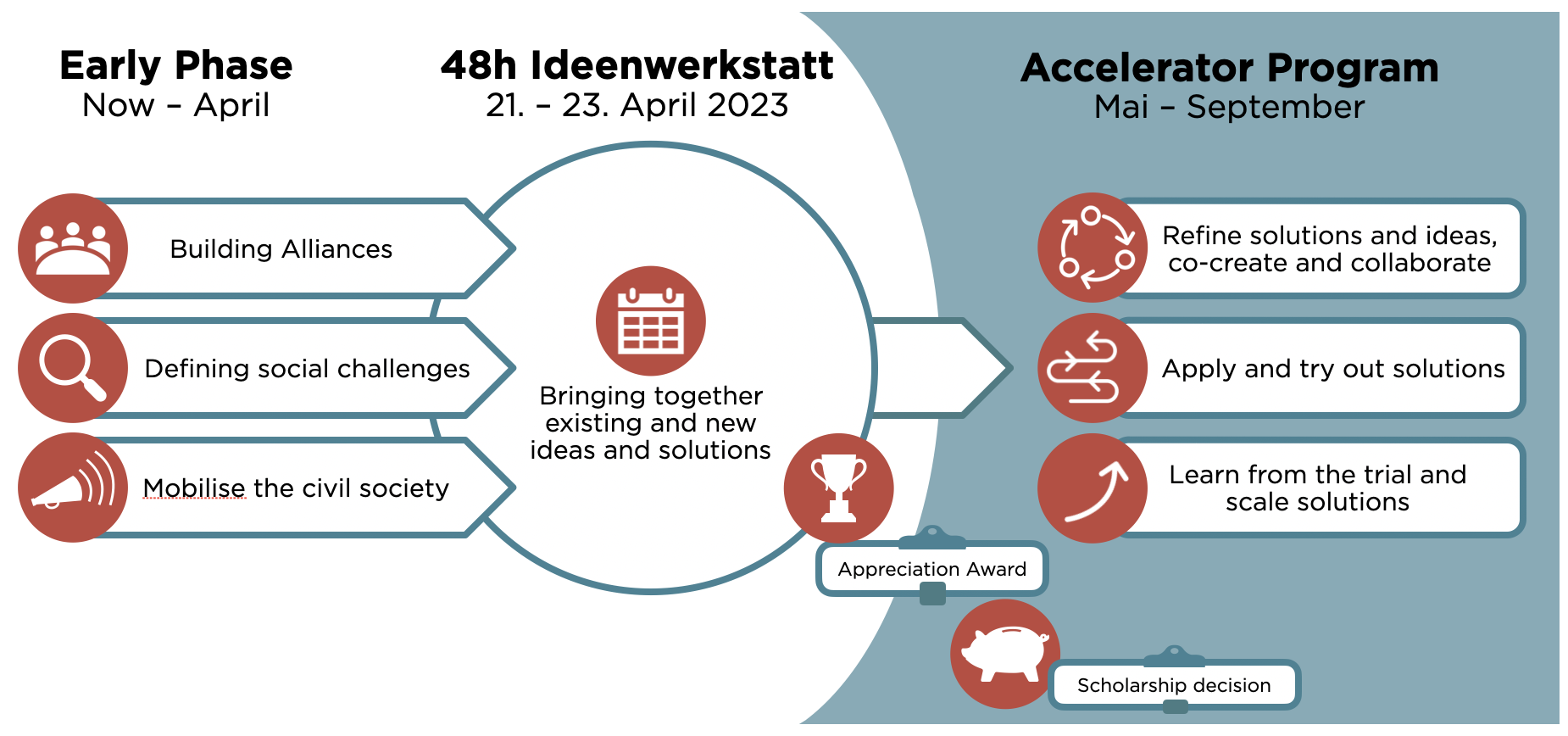
Join the update of the social sector by citizens for citizens!
Together we can drive innovative solutions and strengthen the community for social innovations in Upper Austria.
Role as participant:
Become part of the community of makers, benefit from a public-supported, collaborative and solution-oriented cooperation, help to develop new solutions for the social challenges of our time or commit yourself to take it to the next level with your idea. Curious? Then visit us at https://updatesocial.org/mitmachen/.
Role as mentor / ambassador / implementation partner:
- Support the participants with your knowledge and network. Work with the community at eye level and contribute to a livable future for all.
- Join us in calling on all citizens in Upper Austria and everyone who wants to come to participate in the 48h “Ideenwerkstatt” (Ideation Lab). Whether it's a newsletter or social media - anything works and helps us.
- Do you know other role models who stand for change? Invite them to become part of UpdateSocial.
If you are interested, please contact This email address is being protected from spambots. You need JavaScript enabled to view it..
These partners are already part of UpdateSocial: https://updatesocial.org/team/#partner.
Our mission
With UpdateSocial we want to strengthen the social innovation ecosystem in Upper Austria. The core element of this ecosystem is a strong and transformational community in which there is trust in each other. Thus, this initiative serves as the basic building block for an organically growing movement that drives the digital and green transformation of the social service sector.
How does UpdateSocial work?
Form alliances and define challenges
- We form alliances with leading actors from all sectors to pool everyone's innovative power and foster collaboration.
- The focus is on social challenges that need to be solved. Together with key players in public administration (Land OÖ - Upper Austrian provincial government, Stadt Linz) and with the expertise of Volkshilfe Upper Austria, we identify relevant social issues that we address to civil society.
Mobilizing civil society and (further) developing solutions
- Through an open call at the beginning of March, civil society is to be mobilized for UpdateSocial. Thus, a community will be built to advocate for a sustainable social service sector.
- In mid-April (21. - 23. April 2023), the 48h “Ideenwerkstatt” will take place, where existing and new solution approaches for the identified challenges will be developed. Selected solutions will then be awarded by a jury in diverse categories.
Supporting and scaling ideas with potential
- Initiatives can apply for a support program after the “Ideenwerkstatt” (until 04. April 2023). This starts at the beginning of May (10. Mai 2023) and helps the teams to further develop their solutions through e.g. expert inputs, community meetings and the help of mentors.
- Following the support program, the pilot program will start in October 2022. On October 3, 2023, the project groups will have another opportunity to present their solutions at the Community Celebration. Joint successes will be celebrated, the next steps will be targeted, and the future of the social innovation community will be shaped. What works will be piloted with united strength, e.g. with the help of an implementation partner from our network for social innovation.
Derive and process insights
- Throughout the process of UpdateSocial, which is funded as a scientific project by the Ludwig Boltzmann Gesellschaft, we are collecting insights for a comprehensive "Learning Report" for shared learning on the one hand and for basic research of Open Social Innovation on the other hand.
More information about the project can be found here:
- https://updatesocial.org
- https://updatesocial.org/linktree/
- https://ooe.orf.at/stories/3200196/
- https://www.linkedin.com/company/updatesocial/
- https://www.instagram.com/updatesocial_ooe/
https://www.citizen-science.at/en/network/working-groups/wg-biodiversity/tag/economy#sigProIdea3ccad175
This project fulfils version 1.1 of the quality criteria for citizen science projects on Österreich forscht.
Recycling Heroes
The sale of electrical and electronic equipment is constantly increasing and accordingly e-waste has already become the fastest growing waste stream in the world. Our society needs to face this challenge without delay, so the Recycling Heroes project aims to raise awareness about e-waste, especially among students but also in society in general, by combining the principles of the circular economy with citizen science methods.
Participation
As citizen scientists, the students develop a comprehensive questionnaire to ask their family or neighbours what electronic products are used for and over what period of time, and what happens to devices that are no longer used. Afterwards, the students analyse the results of the survey and consider what could be done to ensure proper disposal and increase the recycling rate. In addition, the students look into the development of electronic products that can be used in other current citizen science projects. These new products can be developed, for example, as a mesh-up of e-waste parts and new parts - sustainability is the focus here! Subsequently, the developed and tested prototypes will be duplicated in small numbers and distributed to other partner schools in the project. These schools will use the prototypes to collect data on temperature, noise, humidity and particulate matter in the school environment, for example, and then make them available to Citizen Science projects.
Aims
The project aims to strengthen the students' environmental awareness and recycling culture, as well as their understanding of eco-design and development processes. In addition, the students learn to develop suitable survey instruments and to sharpen their scientific thinking with regard to citizen science.
This project fulfils version 1.1 of the quality criteria for citizen science projects on Österreich forscht.
Werkstatt Neu Leopoldau
The research project Werkstatt Neu Leopoldau is focused on the settlement process as a workshop situation for social innovations in housing and urban development, with the aim of fostering sustainable development and creating good neighbourhoods.
As an applied research project, "Werkstatt Neu Leopoldau" (Co-creation Neu Leopoldau) accompanies the settlement process of the IBA quarter in Vienna's 21st district. The phase of residents' and users' arrival in the neighbourhood is explored, which is conceived as a potential for social sustainability in Viennese housing. Using proven and new practices as a starting point, settlement processes are viewed as learning and education processes. Furthermore, it entails socially integrative potentials that should be shaped and further developed in a collaborative and co-creative setting to think about future ways of living in the neighbourhood.
In a first step, relevant topics and questions will be developed in a co-creative process based on the experiences of the actors involved. Special attention is paid to established and future social innovations in urban development (e.g. social innovations such as social support in the settlement process, community spaces, and sharing of further resources, etc.). In a synthesis step, a selection and focus on key topics are undertaken, which are then elaborated in more depth with the target groups in collaborative workshops. The aim of the innovation project is to develop transformational knowledge in a spatial context to enable and strengthen learning and educational processes at the individual and institutional level.
The project was carried out from November 2022 until September 2023, involving residents, tenants, property management companies, and experts who are accompanying the settlement process. Werkstatt Neu Leopoldau is supported by the IBA_Wien 2022 of the City of Vienna, MA 50, and a series of further cooperation partners.
Transdisciplinary research team
- future.lab Research Center TU Vienna: Christian Peer (project leader), Magdalena Augustin, Tamara Bauer, Ruth Höpler
- Citizen scientists: residents of Neu Leopoldau
- Practice partners: GB* district management Neu Leopoldau, property management and further experts, who professionally accompany the settlement process
Podcast episode
In September 2022, project leader Christian Peer was a guest on the Österreich forscht podcast "Wissen macht Leute" - if you're interested to learn more about the project, you can listen to the episode here (in German). In addition, Maria Schönswetter, a dedicated Citizen Scientist in the project, gave interesting insights into the project in March 2023 - tune in!
Results
You can download the final report directly from IBA_Vienna 2022 website or from the future.lab website!
Read more about the findings and results in our blog entry!
![]()
This project fulfilled version 1.1 of the quality criteria for citizen science projects on Österreich forscht.
Homegrown
“Homegrown - There is nothing like a homegarden”
Project description
With their variety of plant species and the experience of the gardeners, rural home gardens constitute an integral component of the cultivated landscape in the Lienz district, East Tyrol. Together with pupils of the BG/BRG Lienz school (and biology, math/physics and English teachers), scientists are investigating rural home gardens, including stocks of plant species and the use of plants. These results will be compared with those taken 20 years ago from the same gardens and will help to identify changes in gardens and their cultivation. These diachronic perspectives allow a precise and empirically established overview of changes in rural home gardens in the countryside of an industrial and services-focused state, in the context of demographic and economic changes and the search for a new identity.
To gain a better understanding of the local perception of the significance of rural home gardens, observations from gardeners and their neighbours concerning ecosystem services in gardens and their significance will also be recorded.
The project will also investigate cultivation techniques that adapt to extreme weather or ensure sustainable growth. It will also find out why people grow gardens and which values and approaches guide their behaviour or actions in gardens.
As part of an additional citizen science module, the local population in East Tyrol and Oberen Drautal will be combined. The module appeals to gardeners who are interested in taking surveys in their gardens, according to methodological direction and by monitoring their gardens, so as to demonstrate the material and immaterial ecosystem services in gardens. These gardeners and the cooperating young people will be trained in simple quantitative and qualitative survey methods for this purpose. This will take into account the opportunities that depend on the education and experience of each individual participant.
The starting point for developing analogue survey tools for the researching gardeners is a universal T-card office planner (49 x 47.3 cm, 7 panels, light grey) with 20 slots and 7 columns. The card slot system provides a weekday structure (Monday to Sunday), an hourly structure (6 a.m. to 10 p.m.) and six variables for recording ecosystem services.
On the universal T-card planner, the gardeners use the provided weekday and time scales with differently coloured slots to record the following specific information in writing about the individual ecosystem services during the recording period:
- Provisioning services, such as the yield of vegetables and fruits from the home garden (name of the person harvesting, time and duration, name of the harvested fruits and vegetables, the amount harvested and its respective use).
- Regulating services, such as birds, insects or pests in the home garden (name of the observing person, time and duration, name and number of birds, insects or pests observed).
- Cultural services, such as cultivation techniques in the home garden (name of the person cultivating, time and duration, tools used, etc.) or activities in the home garden when used as a place for relaxation and leisure.
The time spent in the garden will be recorded with a simple stopwatch. Some plant materials will be weighed out with simple, easily available kitchen scales. The card slots will be placed somewhere protected from weather or positioned where they are in the gardener’s view. This location will be decided on site with the gardener.
The duration of collections using the card slot system will be calculated at at least a week and will then be passed on to another gardener. Seven card slot systems will be prepared. The recordings ran from 1 August to 31 August 2018.
Through the participation of citizen scientists, a continuous observation and record of local perception (emic viewpoint) of the ecosystem services of home gardens is guaranteed. The methods were proposed by a gardener from the region being researched and were discussed/considered together with other gardeners from the area. The citizen scientists were actively involved in data acquisition and collection, data analysis and interpretation and the publication of results in the project report, scientific journals and conferences and in local media (dolomitenstadt.at). The collected data was continuously documented and stored by scientific guardians. Interim and final results were returned to the participating gardeners as part of the “give back” culture in the citizen science final event (“Gartenfest”).
Project collaborators
Heidemarie Pirker
Brigitte Vogl-Lukasser
Partners
BG/BRG Lienz (Renate Hölzl, Arno Oberegger, Hansjörg Schönfelder and the pupils of class 6b (from academic year 2018/2019: 7b).
Marie-Luise Wohlmuth (workshops on soil biology)
Ramona Walder (photography)
Peter Werlberger (video)
Gerhard Pirkner (dolomitenstadt.at)
Germain Weber & Team (Faculty of Psychology, University of Vienna)
Christian Ragger (REVITAL - Integrative Naturraumplanung GmbH)
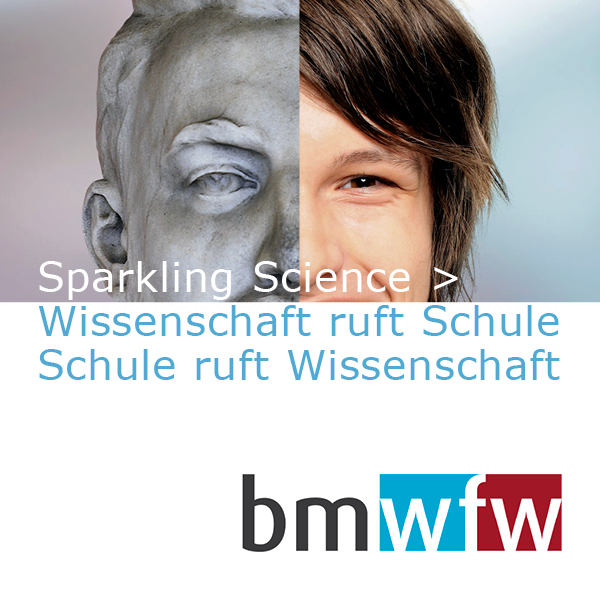
Image gallery
(Click on an image to enlarge)
https://www.citizen-science.at/en/network/working-groups/wg-biodiversity/tag/economy#sigProId537f10b2da
This project fulfilled version 1.1 of the quality criteria for citizen science projects on Österreich forscht.
Fire Database
Since 2008, the Institute of Silviculture at BOKU University, Vienna, has been analyzing the occurrence, distribution, causes and characteristics of forest fires in Austria as part of various research projects. The data series spans several decades and includes around 8000 fires, of which around 7000 are forest fires. The last 20 years are the best documented. The Institute of Silviculture has created the web GIS platform “Fire Database”, which is freely accessible and allows interested parties to query forest fire events and generate statistics or graphics.
Most forest fires are recorded in spring and summer. Parts of Carinthia, Tyrol, Styria and southern Lower Austria are particularly frequently affected by forest fires. In most cases, the cause of the fire is human behavior, such as an out-of-control fire, a carelessly discarded cigarette or hot ash. In the summer months, lightning induced fires also play a significant role. Several forest fires have been investigated as case studies to analyze the fire behavior, the mortality of the affected trees and the regeneration of forest stands.
Anyone who would like to actively participate as a citizen scientist in forest fire research can do so via the mobile app spotFIRE, which was launched in 2024. spotFIRE is available for Android, iOS and as a web version and enables the on-site documentation of wildfires. In addition, spotFIRE can be used to record the forest structure and fuel quantities. With their participation, citizen scientists support the continuation of the forest fire database and enable scientists to make better estimates of forest fire behavior in Austria.
Podcast episode
In June 2023, project coordinator Mortimer Müller was guest on the Österreich forscht podcast Wissen macht Leute - you can listen to the episode here (in German).
Citizen Science Seminar
In 2021, poject coordinator Harald Vacik held a lecture about "Fire Database" as part of the lecture series "Citizen Science Seminar" at BOKU University: "Challenges of forest fire research in the alpine region" (in German).
Links
- spotFIRE App
- Forest Fire Database Austria
- Forest Fire blog Austria
- Forest fire research at BOKU
- European Forest Fire Information System (EFFIS)
-
 Cloud of smoke from the forest fire near Neunkirchen, Lower Austria, on 1st August 2013 Cloud of smoke from the forest fire near Neunkirchen, Lower Austria, on 1st August 2013
Cloud of smoke from the forest fire near Neunkirchen, Lower Austria, on 1st August 2013 Cloud of smoke from the forest fire near Neunkirchen, Lower Austria, on 1st August 2013 -
 Forest fire near Neunkirchen, Lower Austria, on 1st August 2013 Forest fire near Neunkirchen, Lower Austria, on 1st August 2013
Forest fire near Neunkirchen, Lower Austria, on 1st August 2013 Forest fire near Neunkirchen, Lower Austria, on 1st August 2013 -
 Damage caused by the forest fire near Neunkirchen (1) Damage caused by the forest fire near Neunkirchen (1)
Damage caused by the forest fire near Neunkirchen (1) Damage caused by the forest fire near Neunkirchen (1) -
 Damage caused by the forest fire near Neunkirchen (2) Damage caused by the forest fire near Neunkirchen (2)
Damage caused by the forest fire near Neunkirchen (2) Damage caused by the forest fire near Neunkirchen (2) -
 Damage caused by the forest fire near Neunkirchen (3) Damage caused by the forest fire near Neunkirchen (3)
Damage caused by the forest fire near Neunkirchen (3) Damage caused by the forest fire near Neunkirchen (3) -
 Damage caused by the forest fire near Neunkirchen (4) Damage caused by the forest fire near Neunkirchen (4)
Damage caused by the forest fire near Neunkirchen (4) Damage caused by the forest fire near Neunkirchen (4) -
 Number of forest fires 2003-2024 (reported via Fire-Database) Number of forest fires 2003-2024 (reported via Fire-Database)
Number of forest fires 2003-2024 (reported via Fire-Database) Number of forest fires 2003-2024 (reported via Fire-Database) -
 Distribution of forest fires over the year (totals from 2003-2024; reported via Fire-Database) Distribution of forest fires over the year (totals from 2003-2024; reported via Fire-Database)
Distribution of forest fires over the year (totals from 2003-2024; reported via Fire-Database) Distribution of forest fires over the year (totals from 2003-2024; reported via Fire-Database)
https://www.citizen-science.at/en/network/working-groups/wg-biodiversity/tag/economy#sigProId9148f66075
This project fulfils version 1.1 of the quality criteria for citizen science projects on Österreich forscht.
Nan-O-Style
Nan-O-Style is a research and education project by the University of Salzburg, Department of Biosciences.
What is Nan-O-Style researching?
Nan-O-Style researches the complex topic of nanotechnology. Together with Austrian schools, we want to discover new and previously unknown interactions between modern lifestyle products and nanomaterials. Are there undesirable interactions and do these change the properties of the product? Everyone encounters nanotechnology in day-to-day life. But how informed is the general public on this subject? – These are all questions that we want to answer with Nan-O-Style!

Collaboration between university and school
New, fresh ideas and scientific research converge. Through cooperations with international educational partners, interactive materials that go beyond research work are developed for interdisciplinary natural science lessons.
What do we want to learn from you?
Nanotechnology is already available in many day-to-day products. But what do you know about them? Was nanotechnology already covered in your education? Do you want to be better informed about nanotechnology?
How can you participate?
An online questionnaire will ask questions about nanotechnology and survey your personal stance. Visit us on our website, then go directly to the questionnaire (in German) at or scan the QR-code below and take part in the questionnaire.
Where can you find more information about nanotechnology?
On Tuesday, 26 February 2019, the Open NanoScience Congress (ONSC), a public conference on nanotechnology, took place in Salzburg. Pupils from the Nan-O-Style project by Sparkling Science actively participated in the conference and presented their work in a chaired poster session titled “Nano-Research Spotlights”. There were also keynote lectures by the invited experts and insights into ongoing research projects at the University of Salzburg. A nano exhibition with hands-on stations and analytical apparatus to measure nanoparticles rounded off the ONSC. Interested parties and school groups were very welcome. The programme and registration can be found at www.uni-salzburg.at/ONSC.
Online: Research results on nanomaterials and their impacts on people and the environment are made available to the public on the internet platform www.nanopartikel.info. The aim of this internet platform is to format current research results to be understandable for interested parties.
Who is involved in the project?
The Department of Biosciences at the University of Salzburg worked together with several partners on this project.
The schools involved are: BRG Lerchenfeld (Carinthia), BRG Schloss Wagrain (Upper Austria), BRG Solar City (Upper Austria), Gymnasium Ort (Upper Austria), HLW St. Veit (Carinthia), HLBLA St. Florian (Upper Austria), Multi Augustinum (Salzburg), HTL LMT (Upper Austria), PdC BORG Radstadt (Salzburg). The school network is overseen by Reinhard Nestelbacher at DNA Consult Sciencetainment.
Nan-O-Style also involves international partners, such as the ORT Moshinsky research and development institute in Tel Aviv, the cc-NanoBioNet German association and an educational partner in Barcelona (Nanoeduca).

Sparkling Science Project SPA 06/270 supported by BMBWF. Runtime: 1. Oktober 2017 - 31. Dezember 2019.
This project fulfilled version 1.1 of the quality criteria for citizen science projects on Österreich forscht.





